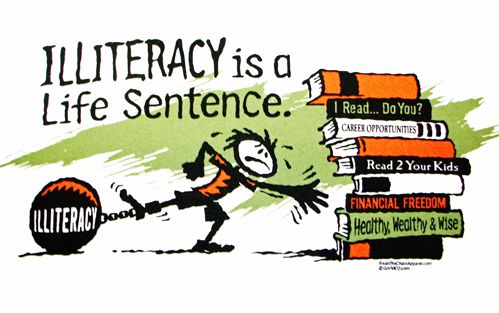
Illiteracy has direct impacts on individuals’ wellbeing and mental health. Low literacy can lead to social isolation, low self-esteem, anxiety, and depression.
Illiteracy has a wide and far-reaching impact on society. The consequences of illiteracy span across all spheres of life, from family and work to health, wellbeing and beyond.
For families, illiteracy can lead to a lack of parenting skills, as parents may find it difficult to provide the resources and support children need to become literate. This can result in reduced educational achievement and lower job prospects. Parents might also find it challenging to access key information that could help them in their roles as caregivers, leading to increased stress and an inability to support their children’s development.
At work, literacy skills are essential for negotiating complex tasks and communicating effectively with colleagues. Those without adequate literacy can feel isolated and marginalized in the workforce, often unable to gain the promotion and benefits of skilled employment. For employers, low levels of literacy can lead to low productivity and a lack of qualified personnel.
Illiteracy can also affect people’s health, as a lack of reading and writing skills makes it difficult to understand information about medicines and health care services. This can have serious implications, such as increasing the incidence of medical errors and misdiagnosis.
Finally, illiteracy has direct impacts on individuals’ wellbeing and mental health. Low literacy ratios can lead to social isolation, low self-esteem, anxiety, and depression. These issues can be compounded by the shame and embarrassment associated with struggling
Azra BATOOL DAHANI
Karachi Sindh